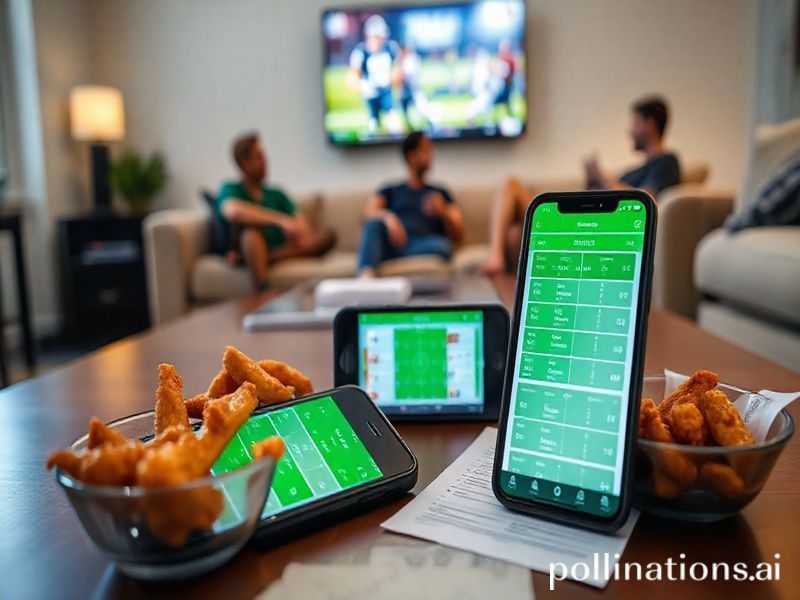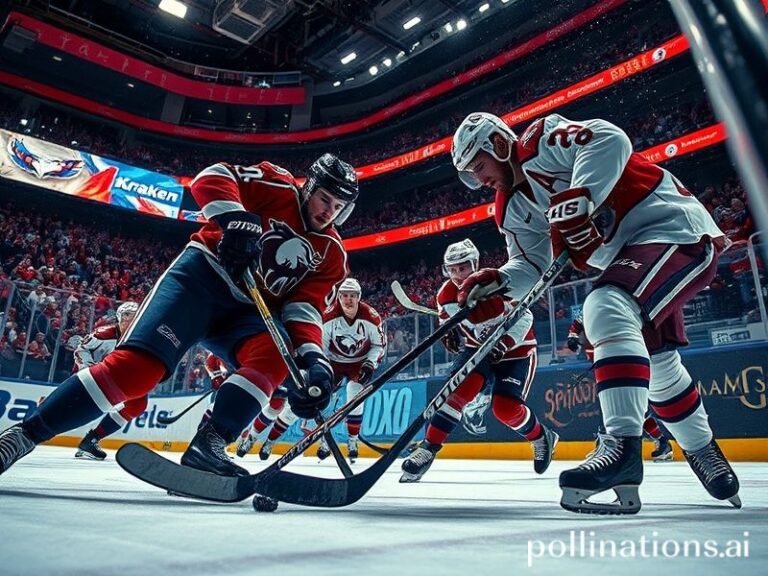cbs fantasy football
CBS Fantasy Football: How an American Pastime Became the Planet’s Most Efficient Sleeper Cell
By the time most of Europe is debating whether to raise the retirement age to 75 or simply replace pensions with TikTok dances, a quiet army of 12 million global managers—yes, that is the officially sanctioned euphemism—has already spent the pre-dawn hours haggling over a third-string running back in Cleveland. CBS Fantasy Football, once a polite American hobby for people who missed the Cold War, is now the largest unregulated derivatives market nobody in Davos talks about.
From Manila call-center break rooms to Norwegian oil rigs, the app pings awake at 3:07 a.m. local time, reminding users that the waiver wire is about to close. This is not sport; it is a cross-border liquidity pump disguised as sport. Managers in Jakarta swap Kenyan-born wide receivers with the same fervor their grandfathers once swapped spices. The only difference is the nutmeg now has a hamstring issue listed as “questionable.”
The genius of CBS’s platform—apart from its cheerful willingness to charge you $179.99 for the privilege of being emotionally waterboarded every Sunday—is its elegant export of American anxiety to jurisdictions that previously outsourced despair only to the IMF. Consider the United Kingdom, where Brexit was supposed to restore sovereignty but instead restored 4 a.m. injury reports about the Ravens’ left tackle. British productivity has not fallen; it has simply been reallocated to mock drafts conducted on the District line between Paddington and Hammersmith.
Meanwhile, in the Global South, where data is still priced like liquid gold, fantasy football functions as a shadow foreign-exchange market. A single Kenyan shilling will purchase 0.00000023 shares of a Justin Jefferson touchdown; a small fortune if Jefferson remembers how to catch. Local telecoms report spikes in mobile-money transfers that mysteriously coincide with kickoff—money that might otherwise have gone toward malaria nets or, God forbid, taxes. The World Bank, ever alert to new forms of capital flight, lists “CBS league entry fees” under remittance inflows, right between diaspora donations and crypto-ransom payments.
Of course, the platform’s true geopolitical utility is surveillance. The Department of Homeland Security doesn’t need to bug your phone when you willingly upload a 14-team PPR roster that handily maps your risk tolerance, tribal loyalties, and susceptibility to confirmation bias. The algorithm knows you started a Jets quarterback “for the upside”; it therefore knows you are capable of anything, including voting.
International regulators have tried, half-heartedly, to intervene. The EU’s Digital Services Act now requires platforms to label paid fantasy advice as “commercial content.” CBS complies by burying the disclosure beneath a pop-up ad for buffalo-wing delivery, which is the Brussels equivalent of hiding a cigarette warning inside the surgeon general’s own trachea.
Still, the real marvel is cultural. Fantasy football has achieved what the United Nations never could: a voluntary, planet-spanning bureaucracy whose by-laws are more universally respected than the Geneva Conventions. Trade vetoes are enforced with greater alacrity than arms embargoes; collusion is investigated more rigorously than war crimes. When a manager in Lagos flips Dalvin Cook for a kicker and a prayer, 11 other countries weigh in before breakfast.
All of it culminates every December in something called the “Trophy Ceremony,” which increasingly resembles the last helicopter out of Saigon—only the chopper is sponsored by DraftKings, and the pilot needs one more WR2 to clinch a playoff berth. Winners receive a virtual chalice plus the right to text “better luck next year” in 17 time zones. Losers receive the knowledge that, for 17 weeks, they successfully pretended the collapse of Western civilization could be offset by a late-round flier on a rookie tight end.
The season ends; the world does not. Somewhere, a 43-year-old accountant in Uruguay is already studying Week 1 matchups for 2025, because hope, like compound interest, accrues even when the underlying asset is made of ligaments and regret. CBS thanks him for his subscription. The rest of us thank him for reminding us that, even in an era of polycrisis, humanity can still agree on one thing: someone else’s hamstring is definitely worth more than your own.







